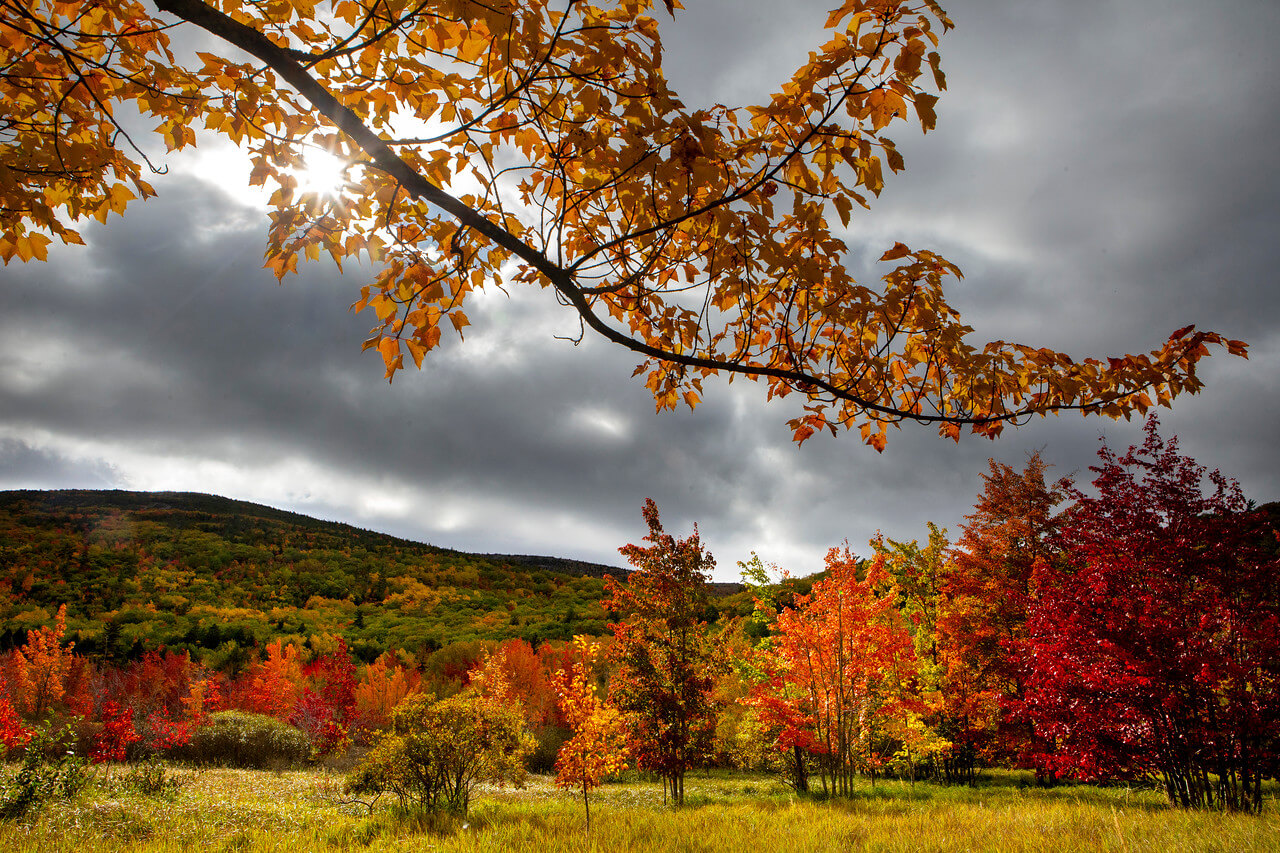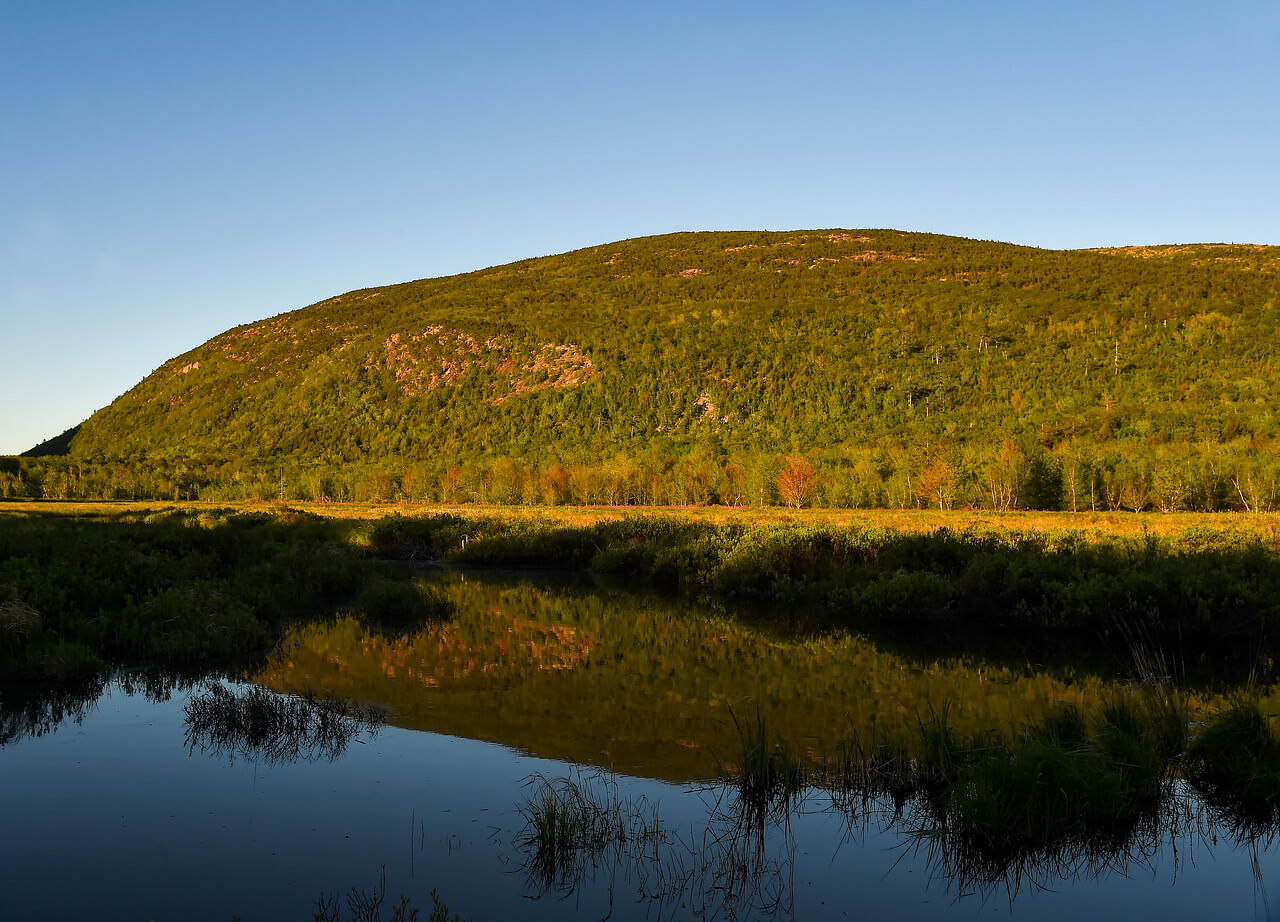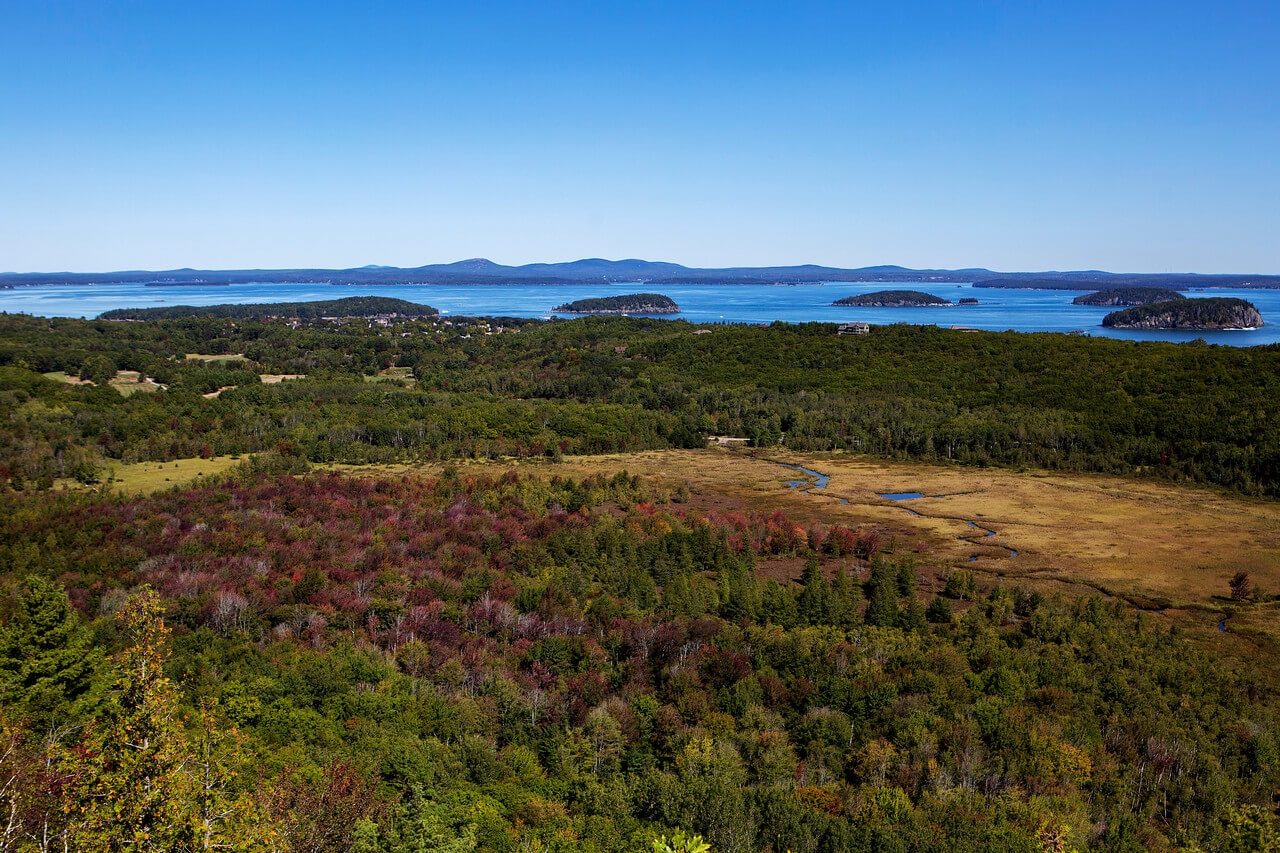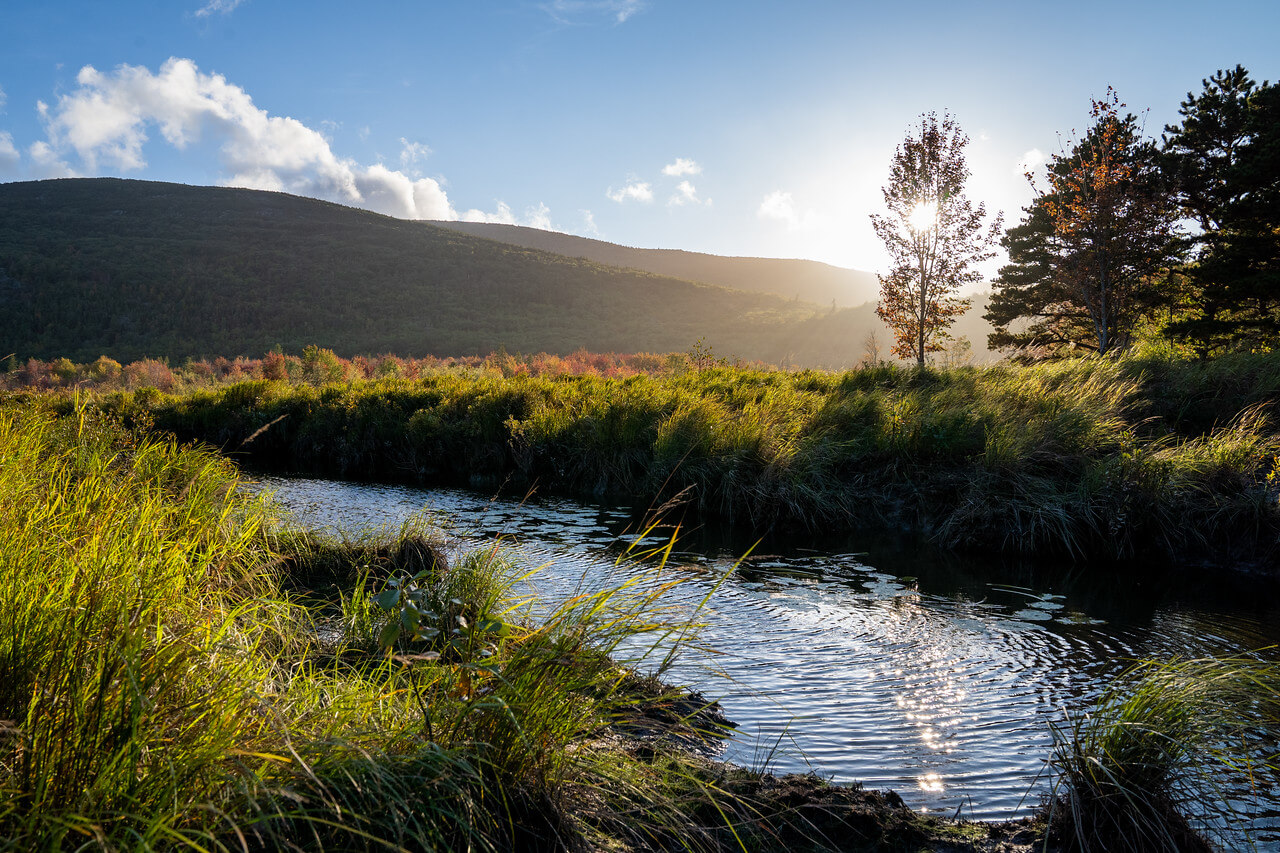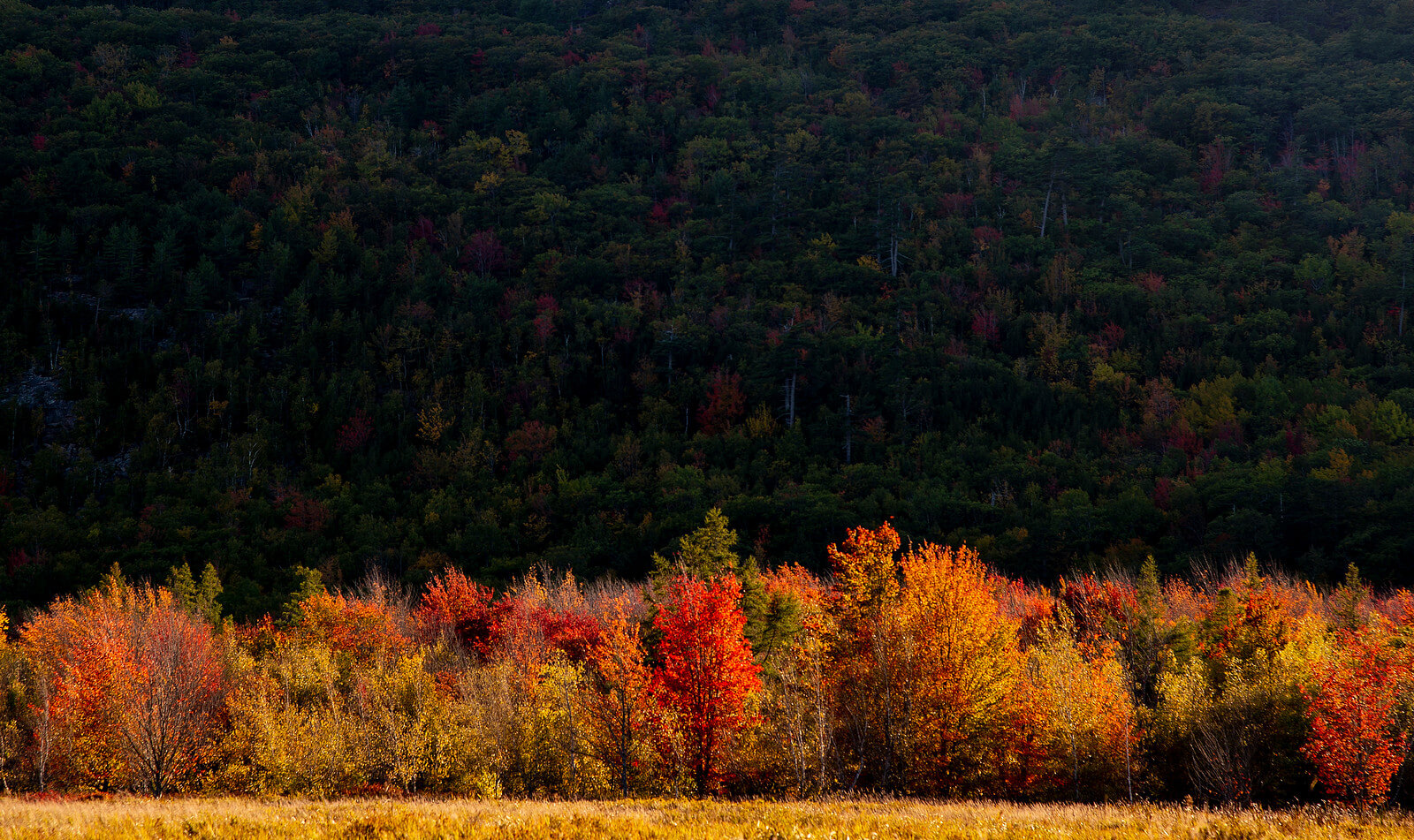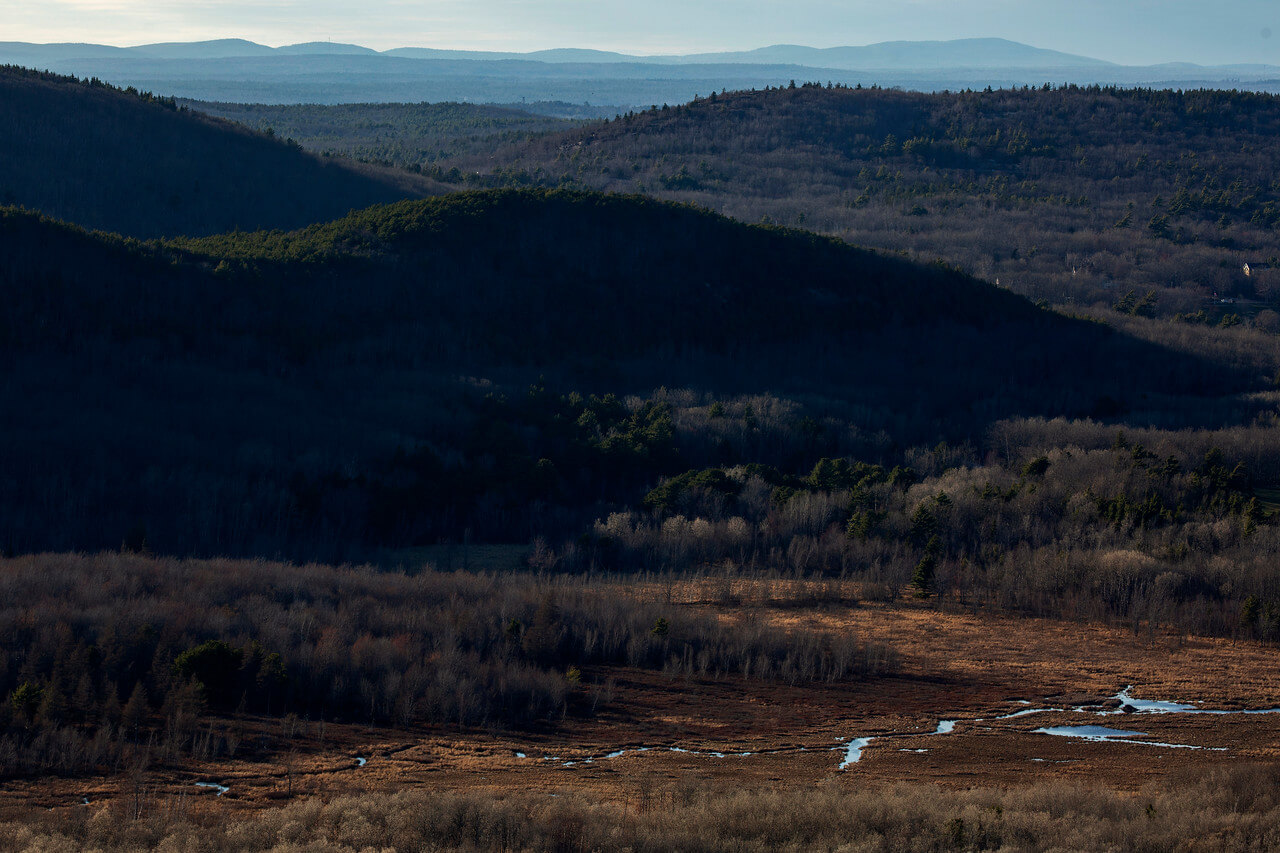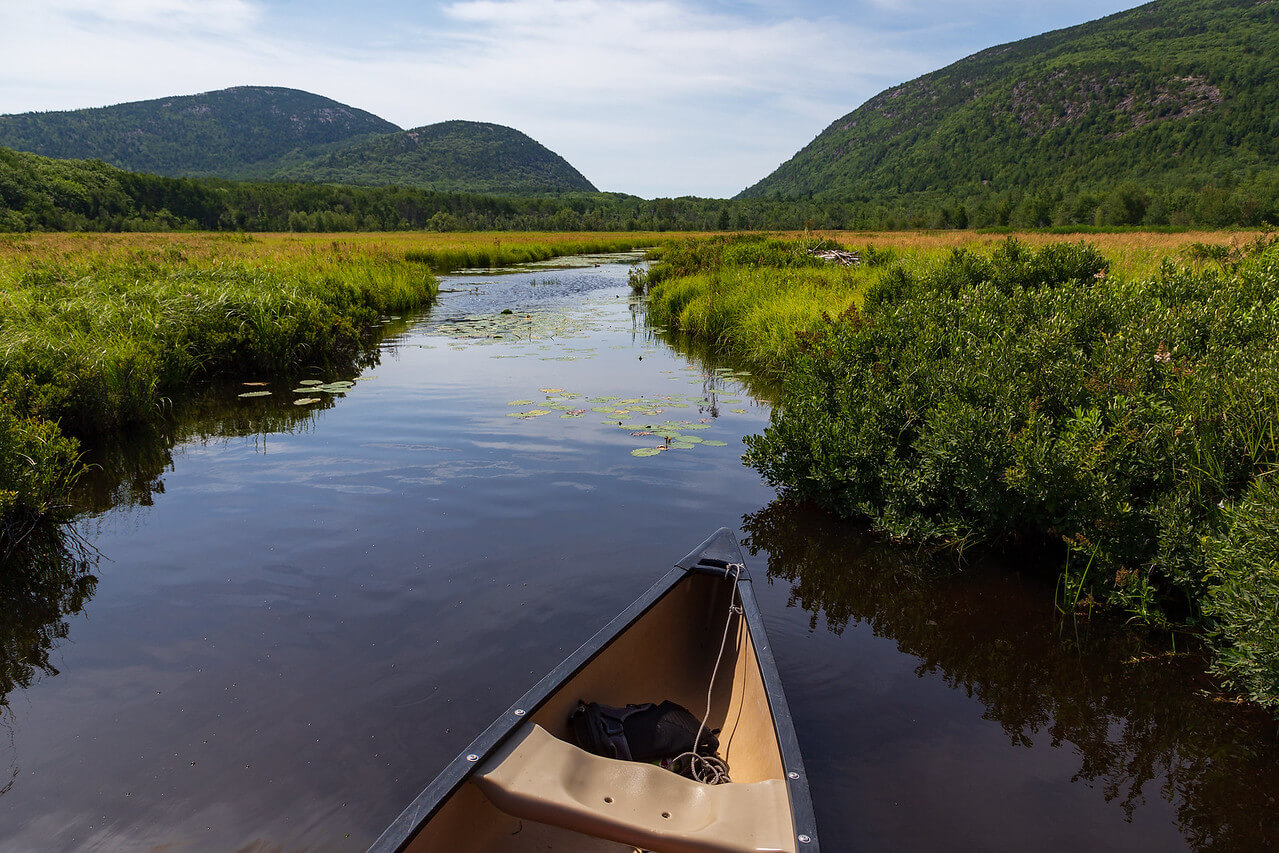
A canoe floats on the main channel in Great Meadow during a census survey aimed at understanding the population dynamics of beaver in the Cromwell Brook and Otter Creek watersheds in Acadia National Park. (Photo by Will Greene/Friends of Acadia)
Located adjacent to the Park Loop Road and the Sieur de Monts Spring area, the Great Meadow Wetland is part of a larger network of wetlands, streams, and ponds in the Cromwell Brook watershed, including the Tarn. Nestled at the base of Dorr Mountain, Park founder, George B. Dorr, focused much of his attention on this area and greatly modified it, adding greenhouses, trails and roads. This, coupled with prior modifications, greatly altered the flow of water through the wetland, impairing its ability to act as a wetland and allowing non-native species to thrive instead of freshwater plants.
Together with partners-in-science like Friends of Acadia, Acadia is working to restore natural water flow into the wetlands and remove invasive plants. The National Park Service is planning to replace the culvert at the Meadow’s outlet with a bridge designed to improve passage for aquatic organisms and to provide the flow capacity needed for larger storm events anticipated because of climate change.
 Join
Join Donate
Donate Acadia National Park
Acadia National Park


